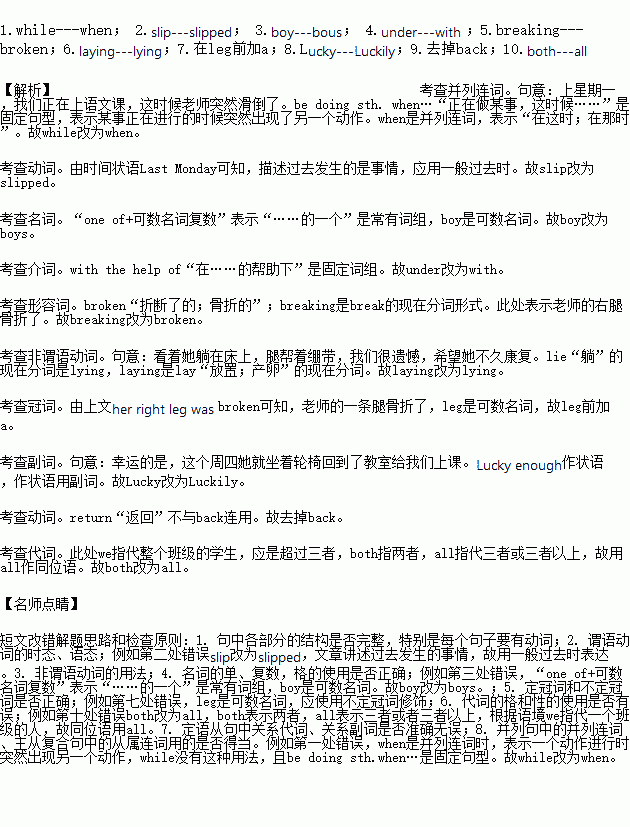题目内容
下面短文中有10处语言错误。请在有错误的地方增加、删除或修改某个单词。
增加:在缺词处加一个漏字符号(∧),并在其下面写出该加的词。
删除:把多余的词用斜线(\)划掉。
修改:在错的词下划一横线,并在该词下面写出修改后的词。
注意:1. 每句不超过两个错误;
2. 每处错误及其修改均只限一词;
3. 只允许修改10处,多者(从第11处起)不计分。
Last Monday, we were having our Chinese class while the teacher suddenly slip and fell. We were all worried about her. One of the boy carried her on the back, under the help of some others, to the clinic immediately. It turned out that her right leg was breaking and she had to stay in hospital. The following day, we went to visit her with flowers and fruit. Seeing her laying in bed with leg wrapped in bandages, we felt sorry for her and hoped that she would recover soon. Lucky enough, this Thursday she returned back to the class in a wheelchair to give us lessons. We were both deeply moved and proud of having such a responsible teacher.
 阳光课堂课时优化作业系列答案
阳光课堂课时优化作业系列答案
